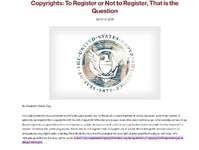The only protection will you have in court is if you register your song with the copyright office (In the US, that is). If someone steals your song and you want to take them to court, no one is going to look at YouTube to see when you posted a video. The court will look at when you registered it with the copyright office. Why? Because that is how the law is written. The law says nothing about YouTube, spotify, lockboxes, post-stamped letters to yourself, and the courts need to uphold the law. So, while it makes sense that you posted it on youtube and there is a date-time stamp, it means nothing in court. Until they change the law to include YouTube.
This is all in the US, of course. The UK does have some different laws that allow for sealed letters to yourself and/or registering with a PRO.
So, it's kind of expensive these days to register a song. What is it, like $85?? It used to be $35 and even that was a lot of money. But you can register up to 10 songs on one registration, so that helps a lot. $8.50 per song.
But when all is said and done, you gotta have a top 100 hit song before you really have to worry about someone stealing it. In my experience, the most likely place for infringement is when you bring your song to your band and the other guys add in their little bits and pieces: guitar fills, bass lines, drum rhythms, etc. They get to thinking that because they came up with a great riff to add to the song, that they are now a co-writer. Then when the band breaks up, they think the song is theirs and they register it with the copyright office and go on to make millions with your song with their new band.
And because you posted it on youtube instead of registering it, you lose the court case.

 ...Love this stuff...this is about 10 miles from my shack...crazy cool ass whoopin goin down on the bad guy
...Love this stuff...this is about 10 miles from my shack...crazy cool ass whoopin goin down on the bad guy
